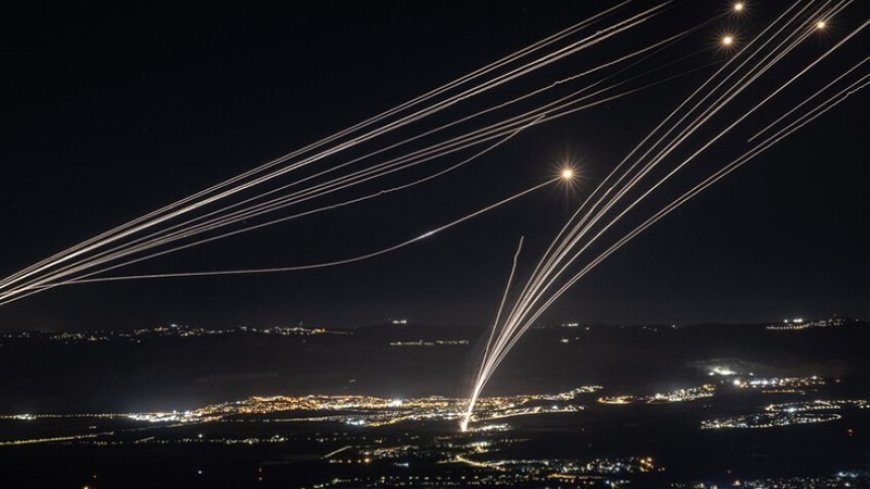Tel Aviv Chaos: Yemeni Missiles Strike, Ben Gurion Airport Operations Stopped
More than two million Israeli immigrants have allegedly sought cover in bunkers as missile strikes from Yemen targeted Tel Aviv and Middle Eastern tensions to rise dramatically. Commonly known as the Houthis, the Yemeni Ansarullah organization started a string of missile assaults against Israel's capital to show their support of the Palestinian resistance among the continuing fighting in Gaza and Lebanon.

More than two million Israeli immigrants have allegedly sought cover in bunkers as missile strikes from Yemen targeted Tel Aviv and Middle Eastern tensions to rise dramatically. Commonly known as the Houthis, the Yemeni Ansarullah organization started a string of missile assaults against Israel's capital to show their support of the Palestinian resistance among the continuing fighting in Gaza and Lebanon.
The Israeli government verified the claims of the strikes, pointing out that its highly-publicized missile defense system, the Iron Dome, failed to stop the missile onslaught. Key infrastructure, notably Tel Aviv's Ben Gurion Airport, which momentarily stopped all airline operations as a precaution, has been immobilized by the accompanying hysteria. Many approaching planes were forced to veer, leaving the country's airspace chaotic.
The seriousness of the matter was shown by the alarms around Tel Aviv ringing nonstop as people hurried to shelters. Israeli military sources claim that the warning sirens were set off in reaction to the missiles fired from Yemen, thereby extending the battle outside Israel's borders with Gaza and Lebanon.
The Part Ansarullah Plays in the Greater Conflict
Long active in the Yemeni Civil War, Ansarullah, the militant branch of Yemen's Houthi movement, has drawn backing from Iran. The Houthis have now positioned themselves more and more as regional players allied with other anti-Israel organizations like as Hamas in Gaza and Hezbollah in Lebanon. Their missile attacks on Israel indicate a fresh phase of escalation, hence extending the scope of the fight.
Senior Ansarullah political wing leader Ali al-Fahoum responded on the strikes, saying they directly show Yemen's support of Palestinians in Gaza. The timing is vital as Israel's military has been stepping up its activities against Hezbollah positions in Lebanon and Hamas in Gaza, therefore aggravating tensions all around.
Local Solidarity and Expanding Conflict
With numerous non-state players like Hezbollah and Ansarullah adopting a more aggressive posture against Israel, the Middle East's more general geopolitical scene has changed drastically. Deep ties to Iran abound in both factions, which supports their military, logistical, and financial battles with Israel.
Confirming the extent of the assaults from Yemen, Lebanese media—especially Al Mayadeen TV—said that Israeli military sources linked the continuous sirens in Tel Aviv to the missile strikes. This complicates the security scenario in the area even more since Hezbollah is waging cross-border conflicts with Israeli soldiers.
The Israeli government is more under strain as the war spreads. The unexpected disturbance at Ben Gurion Airport, a major international gateway, illustrates the more general concerns about multi-front attacks overwhelming Israel's defences.
Humanitarian Issues and Foreign Policy Reactions
This new escalation has rippling consequences outside of military domains as well. Over two million Israeli citizens, many of whom feel insecure even with Israel's advanced security systems, are fleeing into shelters in reflection of mounting dread. The strikes on Tel Aviv also beg important issues regarding the direction of commercial aviation in Israel as extended airport closures would have significant political and financial repercussions.
Reiterating their support of Israel's right to defend itself, several Western countries have responded internationally; others have demanded an instantaneous ceasefire and de-escalation. The fighting has focused fresh attention on the humanitarian problems in Gaza and Yemen, where years of war, embargo, and bombings still cause suffering for people.













































